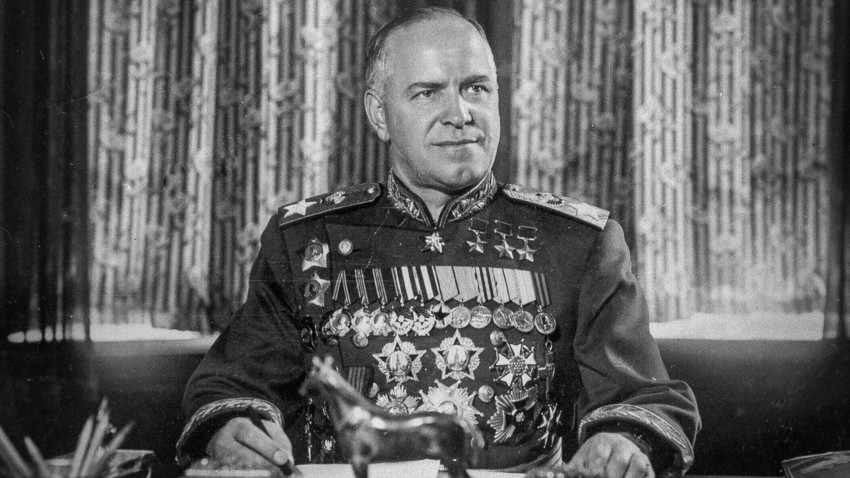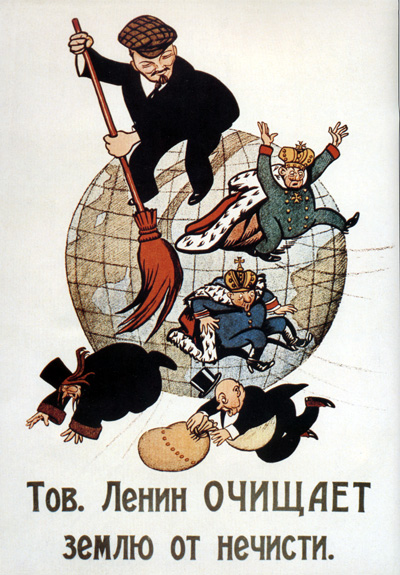born December 1 [November 19, Old Style], 1896, Kaluga province, Russia—died June 18, 1974, Moscow), marshal of the Soviet Union, the most important Soviet military commander during World War II.
Having been conscripted into the Imperial Russian Army during World War I, Zhukov joined the Red Army in 1918, served as a cavalry commander during the Russian Civil War, and afterward studied military science at the Frunze Military Academy (graduated 1931) as well as in Germany. He rose steadily through the ranks, and as head of Soviet forces in the Manchurian border region he directed a successful counteroffensive against Japanese forces there in 1939.
During the Winter War, which the Soviet Union fought against Finland at the outset of World War II, Zhukov served as chief of staff of the Soviet army. He was then transferred to command the Kiev military district and in January 1941 was appointed chief of staff of the Red Army. After the Germans invaded the Soviet Union (June 1941), he organized the defense of Leningrad (St. Petersburg) and was then appointed commander in chief of the western front. He directed the defense of Moscow (autumn 1941) as well as the massive counteroffensive (December 1941) that drove the Germans’ Army Group Centre back from central Russia.
In August 1942 Zhukov was named deputy commissar of defense and first deputy commander in chief of Soviet armed forces. He became the chief member of Joseph Stalin’s personal supreme headquarters and figured prominently in the planning or execution of almost every major engagement in the war. He oversaw the defense of Stalingrad (late 1942) and planned and directed the counteroffensive that encircled the Germans’ Sixth Army in that city (January 1943). He was named a marshal of the Soviet Union soon afterward. Zhukov was heavily involved in the Battle of Kursk (July 1943) and directed the Soviet sweep across Ukraine in the winter and spring of 1944. He commanded the Soviet offensive through Belorussia (summer-autumn 1944), which resulted in the collapse of the Germans’ Army Group Centre and of German occupation of Poland and Czechoslovakia. In April 1945 he personally commanded the final assault on Berlin and then remained in Germany as commander of the Soviet occupation force. On May 8, 1945, he represented the Soviet Union at Germany’s formal surrender. He then served as the Soviet representative on the Allied Control Commission for Germany.
Upon Zhukov’s return to Moscow in 1946, Stalin assigned him to a series of relatively obscure regional commands. Only after Stalin died (March 1953) did the new political leaders, wishing to secure the support of the army, appoint Zhukov a deputy minister of defense (1953). He subsequently supported Nikita Khrushchev against the chairman of the Council of Ministers, Georgy Malenkov, who favoured a reduction in military expenditures. When Khrushchev forced Malenkov to resign and replaced him with Nikolay Bulganin (February 1955), Zhukov succeeded Bulganin as minister of defense; at that time he was also elected an alternate member of the Presidium.
Zhukov then undertook programs to improve the professional calibre of the armed forces. Because this effort involved a reduction in the role of the party’s political advisers and, consequently, in the party’s control of the army, his policies brought him into conflict with Khrushchev. Nevertheless, when a majority of the Presidium (called the “anti-party” group) tried to oust Khrushchev, Zhukov provided the airplanes that transported members of the Central Committee from distant regions of the country to Moscow, thus shifting the political balance in Khrushchev’s favour (June 1957). As a consequence, Zhukov was promoted to full membership in the Presidium (July 1957). But Khrushchev could not tolerate the marshal’s persistent efforts to make the army more autonomous; as a result, on October 26, 1957, Zhukov was formally dismissed as minister of defense and a week later was removed from his party posts. Remaining in relative obscurity until Khrushchev fell from power (October 1964), Zhukov was later awarded the Order of Lenin (1966) and allowed to publish his autobiography in 1969.
Megathreads and spaces to hang out:
- ❤️ Come listen to music and Watch movies with your fellow Hexbears nerd, in Cy.tube
- 💖 Come talk in the New Weekly Queer thread
- 💛 Read and talk about a current topics in the News Megathread
- 💚 Come and talk in the Daily Bloomer Thread
- ⭐️ September Movie Nominations ⭐️
reminders:
- 💚 You nerds can join specific comms to see posts about all sorts of topics
- 💙 Hexbear’s algorithm prioritizes comments over upbears
- 💜 Sorting by new you nerd
- 🌈 If you ever want to make your own megathread, you can reserve a spot here nerd
- 🐶 Join the unofficial Hexbear-adjacent Mastodon instance toots.matapacos.dog
Links To Resources (Aid and Theory):
Aid:
Theory:


Recently got given a faux fur blanket. I'm beginning to despise it because it's shedding so many fake hairs, but my partner loves how warm it is and doesn't want me to throw it in the closet. These things are small, hard to see because they're mostly white, and are basically airborne; I can't imagine how many we've accidentally eaten.
Is there any way I can fix this blanket? I'm thinking about just scrubbing it with the vacuum
Check the washing/care instructions (if any are available) or if you've got some idea of what type of material its made out of you can try to look it up.
If you weren't worried about completely obliterating it "accidentally"... I just give it a gentle wash and run it through the dryer on a low heat tumble setting a few times. Clean the lint trap a few times during the cycle to get an idea of how good of a job the dryer is doing at removing the loose fibers. After the cycle is done, look at the blanket. If it looks like a mangy dog, it probably needs to be disappeared. If it still looks like a blanket and not the skin of a diseased animal, you've probably got all the loosest fibers removed for a while.
Tags are still on it so maybe I'll vacuum it then wash and dry per the instructions
Getting a new kind of lung condition from inhaling fake fur strands
No solutions. I’m surprised I haven’t coughed up a furball with the way our pets shed.
Taking it outside and playing piñata with it every so often would knock the looser ones off…maybe.
I'd be more okay if it was real pet fur, instead I'm stuck Consuming The Microplastics
This might just make things worse by breaking whatever is holding the hairs up more.
I fucking hate built to break trash. "oh your power tool is 2 years old? Its dead now. you cant fix it. the spare parts are not for sale. go buy a new one. oh and the price has gone up 35% in those 2 years."
Good point, that was probably a bad suggestion.
My prized possessions are some tools my grandfather left me. Stuff hasn’t been built the same for decades now and it sucks.
On the plus side it’s satisfying to buy a Chinese tool when I need something and not have to replace it whereas my cousins are constantly replacing their patriotic shit.
Its really a toss up whether beating the blanket will help or hurt.
A sound beating often helps when the western financed junk tools are on their way out but I don't know if that transfers over to blankets.